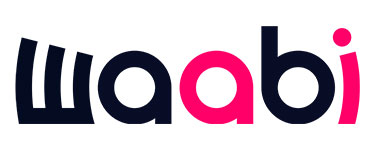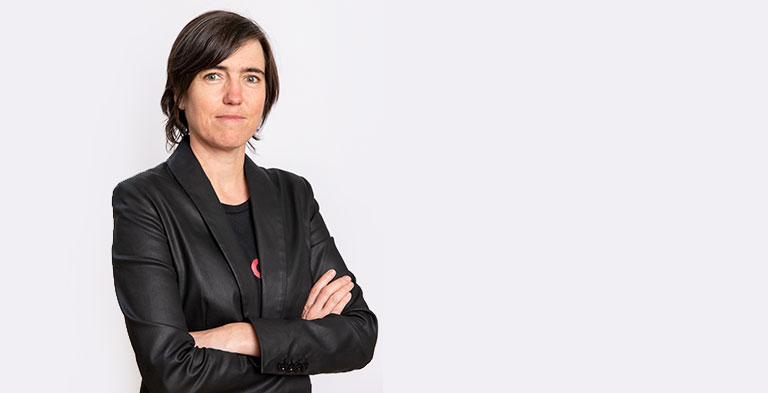

Raquel Urtasun’s artificial intelligence startup Waabi launched in 2021 with the goal of “building a pathway to autonomous driving at scale.” The AI company specializing in self-driving technology focused on its AI-first approach which uses deep learning, probabilistic interference and complex optimization to create software capable of complex reasoning.
Last fall, Waabi unveiled its self-driving product, Waabi Driver, as part of its ongoing focus on long-haul trucking. And in January 2023, Volvo Group Venture Capital (VGVC) made a strategic, undisclosed investment in Waabi Innovation Inc. Through this investment, Waabi plans on working with Volvo to accelerate deployment of their autonomous technology for the trucking industry.
When Waabi was formed in June 2021 it raised $83.5 million — among the largest Series A rounds ever raised in Canada.
As the trucking industry faces challenges with driver shortages, increased freight demand, and long transit times, Waabi is looking to find a solution for scaling autonomous trucking. As part of the investment from Volvo Group, Waabi will work with them to explore ways to “unlock opportunities for global commercialization.”
Deal Points Report: Venture Capital Financings
353 Osler financing deals valued at more than US$6 billion from Seed to Series A through F. What are the deal terms?
Shared vision for the future of autonomous vehicles
Together, the two companies share a core belief and commitment to safety. For example, the high-fidelity close loop simulator, Waabi World, uses AI to expose the self-driving “brain” to the diversity of experiences needed to sharpen its driving skills, including both common driving scenarios and safety-critical edge cases, reducing the need to drive testing miles in the real world and resulting in a safer solution.
“Typically, the industry requires large fleets for testing and verification,” says Raquel, CEO and founder of Waabi, professor at U of T and co-founder of the Vector Institute of AI. “Waabi represents that next generation of technology that comes from an AI-first approach, which is very different with respect to what everyone else is doing.”
As Raquel explains it, Waabi’s approach solves key pain points of the industry: creating a software stack that can handle all scenarios that might happen on the road, enabling testing in an immersive and reactive manner, and assessing and ultimately teaching the self-driving “brain” to learn to drive on its own. “We only use the road for validation and verification,” she says.
The software stack needs to behave the same in simulation as it would in the real world, and we need to test the entire system. Waabi World achieves this by building digital twins of the world automatically from data and performs near real-time high-fidelity sensor simulation enabling testing of the entire software stack in an immersive and reactive manner. Further, it creates stress-test scenarios including safety critical cases at scale to not only test our virtual Waabi Driver, but also teach it to learn from its mistakes on its own.
“This is the only way to properly test the entire stack in simulation and teach the self-driving ‘brain’ how to drive,” she says.
Waabi World leverages AI along with simplified physics-based rendering to simulate realistic sensor data in near real-time.
“What is important when you build self-driving technology is that you have an OEM [Original Equipment Manufacturer] where you can really integrate your technology at the factory level because retrofitting is not something that is robust or safe. It’s not something that big customers will ever buy,” Raquel says. “That’s why having an OEM working with Waabi is extremely important. Not just for the industry but for our philosophy of safety first.”
Waabi has also partnered with VGVC [Volvo Group Venture Capital] to explore new ways to unlock opportunities for scaled commercialization of autonomous technology. VGVC provides an extensive industry network and strategic outlook to support Waabi’s business development and technology deployment.
Working with Osler
Along her journey as an entrepreneur, Raquel says having the right advisors to consult has been critical to navigating a successful path forward.
“I became connected with Osler almost seven years ago with [Emerging and High Growth Companies Group founder and Co-Chair] Chad Bayne. He had helped me in my previous deal with Uber, but also really became a mentor and advisor as well as a friend. He really helped me transition from academia to industry. When I decided to leave Uber to start Waabi, it just made sense to work with Osler,” she says.
“Osler is an amazing firm in the sense that I always feel that not only do you get the best-in-class lawyers, but incredible people who understand your needs and are extremely dedicated to help you on your journey in any possible way,” she says.
Advice to other founders right now
In addition to having a great product and a team that represent a diversity of ideas and backgrounds, Raquel says it takes a combination of factors to make a startup stand out right now.
“Even in difficult times there are still deals happening,” says Raquel. “There is still space for that top cohort of companies to raise funds. In some areas, such as generative AI, it is really booming – it is the golden era.”
“One of the things that is important for Canadians to understand is that when you go out to fund raise, you need to be bold, and you need to aim high,” says Raquel. “Typically, you get a different attitude here than south of the border. This is a moment where you should really go for it.”
To be successful, she also stresses the importance of being strategic and “super ready” with a great product and market fit that has a clear differentiator.
“Who are you targeting? What is the funding that you need? What is the roadmap that you’re going to execute afterwards? What do you need now? What is your differentiator? I think this is all particularly important now. A couple of years ago if you had a great idea, you would likely get the funding. But now, it’s so important to make sure that you have product fit and differentiator,” she says.
Important too is “being intentional about building a culture and don’t compromise on your culture. Surround yourself with people who will challenge you as a founder. Create a safe space so those people can challenge you,” she says.
chatgpt
chat gpt
openai
open ai